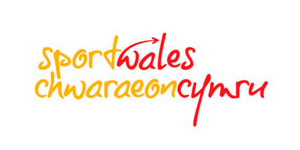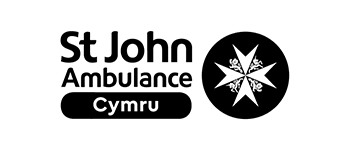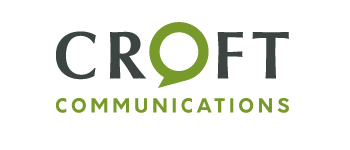NSPCC URGES UK GOVERNMENT TO CLOSE LOOPHOLES IN SPORT AND BEYOND
- Protection in sport shouldn’t end at 16 – position of trust laws must extend to sports coaches and youth workers to protect 16 and 17 year olds
- All coaches and youth leaders should undergo the most stringent checks
- #TrustToLead campaign: laws must protect more children and check more adults
- More than two thirds of adults surveyed in Wales unclear on position of trust laws
The NSPCC is today calling on the UK Government to act quickly to close two legal loopholes that leave the door open for child abusers to target young people in sport and beyond.
Revelations about sexual abuse in football shook the UK in November, leading the NSPCC to set up a dedicated football hotline. NSPCC counsellors have heard from callers how adults working with children had abused their trusting relationship to groom and abuse young players.
The scandal has highlighted gaps in child protection which could make children vulnerable to being abused in sports settings and in other children’s clubs too.
The NSPCC’s #TrustToLead campaign wants to increase the number of children being protected and to extend the most stringent checks with the Disclosure and Barring Service (DBS) to cover more adults working with children.
1.Position of trust laws which protect 16 and 17 year olds should be extended to cover sports coaches and other roles.
The NSPCC is concerned that whilst it’s unlawful for certain professionals such as teachers and social workers to have sex with 16 and 17 year old children in their care, this does not apply to sports coaches or other youth workers.
This must be put on equal footing so that adults who have considerable authority and influence over young people are not able to prey on them once they turn 16.
A survey carried out for the NSPCC showed that more than two thirds (68 per cent) of adults in Wales didn’t know it’s illegal for someone in a position of trust to have sex with 16 and 17 year old children in their care. Across the UK, it was 64 per cent.
A change to the law would make clear that children must be protected in sport and other activities right up to adulthood.
2.All those that work with children should undergo the most stringent DBS check – not just those working alone with children.
Currently it is illegal to hire someone to work with children regularly* if they are barred from doing so – but only if that person would be working with children unsupervised.
This creates a loophole meaning children’s clubs can only find out if someone is barred – using what’s called an enhanced DBS with barred list check – if they would be working alone with children, and individuals applying for roles to work alongside other adults cannot be checked in this way.
This means people who are barred from working with children are able to take up assistant or support roles in children’s clubs completely undetected, creating opportunities for them to abuse children within the club or to build up trust and abuse them outside of that setting.
This loophole should be closed to better protect children not just in sport, but in other activities too. From toddlers to teenagers, whether they’re on the pitch, on stage, or in a place of worship, all children need the best legal protections to keep them safe.
Des Mannion, head of NSPCC Cymru / Wales, said: “It makes no sense for the law to potentially give abusers who are barred from working with children, the opportunity to do just that.
“And it is remarkable that the roles like sports coaches are not considered to be a position of trust by law, given the significant amount of responsibility, influence and authority that an individual in this role can hold in a young person’s life.
“Sadly, we know that this trust can be abused and it is therefore vital that this legal definition is widened to include sports coaches and other youth workers, bolstering protection for teenagers at risk of grooming once they pass the age of consent.
“This is not about demonising certain jobs, but about protecting young people from a small minority of adults only too happy to take advantage of their standing in society to groom and abuse vulnerable children.”
To contact the NSPCC about abuse within football, its dedicated hotline can be reached 24 hours a day on: 0800 023 2642. Young people can contact Childline on 0800 11 11.
ENDS
NOTES TO EDITORS
Background on legislation
Position of trust – Sexual Offences Act 2003 in E&W and the Sexual Offences (NI) Order 2008 in NI
It is an offence for someone over 18 in a defined position of trust to engage in sexual activity with 16 and 17 year olds in their care. But this definition is currently limited to certain roles (eg teachers and social workers) and certain settings, such as hospitals or children’s homes.
Thus sexual activity between an adult coach and a 16 or 17 year old child is not currently illegal in most contexts, because the role of sports coach falls outside the legal definition of a ‘position of trust’.
The Home Secretary has the power to make the proposed changes – so primary legislation isn’t needed.
DBS checks – Protection of Freedoms Act 2012
Currently it is illegal to hire someone to work with children unsupervised and on a regular basis if they are barred from doing so. Thus organisations are required to carry out an enhanced and barred list DBS check for all those who are participating in ‘Regulated Activity’ to avoid breaking the law.
Regulated activity covers situations such as training or instructing on a regular basis* (defined as weekly, four times per month, or any period overnight) – but only when it is being carried out by a person who is working with children unsupervised.
Organisations who apply for a barred list DBS check for roles falling outside of this definition are committing an offence.
Survey data
The survey was carried out on behalf of the NSPCC by ResearchBods Ltd. The sample size was 4,000 with respondents from across the UK. Fieldwork was carried out between November 14 and November 25, 2016. The survey was carried out online.
Survey question: What does the law say about relationships between a young person and a person in a position of trust?
36% (1,454 people) gave the correct answer: It is illegal for person in position of trust to engage in sexual activity with under-18.
Themes from calls to the football hotline which were referred on to other agencies between 23/11/16 and 27/12/16.
The alleged perpetrators were, in the main, people working in football who held a position of trust. Roles included coaches, scouts, club managers or owners and physiotherapists.
These positions of trust often meant that parents were happy for the alleged perpetrators to have close contact with their children. It also meant that this relationship of trust tended to be leveraged either to lead children to believe that the abuse happening was normal and part of their training; or to threaten children that their success or failure within sport depended on their participation in the abuse and them keeping it secret.
Snapshots from the calls are available.
About the NSPCC
The NSPCC is the leading children’s charity fighting to end child abuse in the UK and Channel Islands. Using voluntary donations, which make up more than 90 per cent of our funding, we help children who’ve been abused to rebuild their lives, we protect children at risk, and we find the best ways of preventing child abuse from ever happening.
So when a child needs a helping hand, we’ll be there. When parents are finding it tough, we’ll help. When laws need to change, or governments need to do more, we won’t give up until things improve.
Our Childline service provides a safe, confidential place for children with no one else to turn to, whatever their worry, whenever they need help. Children can contact Childline 24 hours a day, 365 days a year on 0800 1111 or by visiting www.childline.org.uk
Our free helpline provides adults with a place they can get advice and support, share their concerns about a child or get general information about child protection. Adults can contact the helpline 24 hours a day, 365 days a year on 0808 800 5000, by texting 88858 or visiting www.nspcc.org.uk.


















